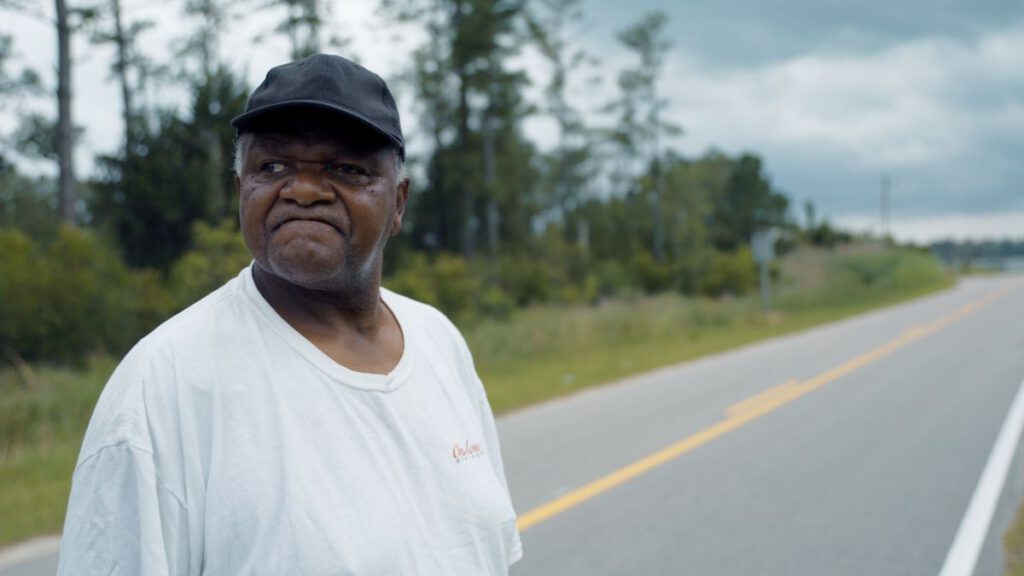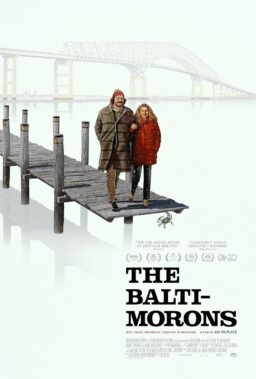The latest documentary from director Raoul Peck (“I Am Not Your Negro”) is “Silver Dollar Road,” available on Prime Video this Friday and playing at this week’s Chicago International Film Festival. Peck’s new film documents the struggles of a Black family against developers trying to take their land on the coast of North Carolina that they’ve lived on for generations. Two members of the family were even imprisoned for seven years for “trespassing.” In an interview, Peck talked about coming into the story after ProPublica journalist Lizzy Heller had been filming the family for more than two years, choosing the women in the family to tell the story, and insisting that the family not be portrayed as victims.
I want to talk to you about the light in this movie. Both the indoor and outdoor lighting are splendid. You really show us why that property feels like paradise for the Reels family members. Tell me about your crew.
There were multiple crews. Don’t forget, the journalist for ProPublica, Lizzy Presser, has been documenting her research for at least two and a half years, and she had different crews. One is Mayeta Clark, which I acknowledge in the credits, and another, DP Katie Campbell. So, these two women have done an incredible job documenting the story of the family for at least two years. And you can imagine, to catch those moments in the life of the family like this, that means you have to spend a lot of time on site. You have to be totally integrated. You have to be in the bad moments, the moments of happiness, the moments of anger. So, I was really fortunate to have that footage, the whole trove of footage, as my own archive to make the film.
What was important to add to the archival footage to shape the story?
When I was ready to shoot my turn, I knew exactly what I was going for because I had made a few choices, like the choice of letting the two women tell the story, Mamie and Kim. And I knew, okay, who can be as key to the story as well? Of course, Melvin and Licurtis. And also, the next generation. So, I knew more or less what I needed to have additionally and create. And the rest is doing my job and create moments where I could let that happen, to go with them on the boat and to spend a day, to go in the forest with Melvin, to find the cemetery, which a lot of them had forgotten that it exists. So, those are really moments where you get to build the narration and to see what the film is going to be.
There was also a decision to make sure I stayed with them. I stayed in their environment. I stayed where their livelihood is, where their childhood memories are, where their ancestors’ memories are. The forest; they know stories about that forest like forever. The cemeteries. There are three cemeteries. That means there are multiple generations. So, I knew I had to stay in that place. That’s where the story happened. That’s where the narrators are telling the story from. And the images had to also translate that. And to finish maybe your question, the rest is also making choices about between those images and make sure that they stay in the same ambiance. And so, yes, I had also good cinematographers to do that.

When did you come into this story? Did you read the story in the New Yorker, or did they reach out to you? How did it all happen?
I was approached by both ProPublica, Amazon, and JuVee production, Viola Davis’ company, and they wanted me to executive produce the film. And they know I had many projects on my slate. And to go and tell a story about the North Carolina family, they thought, “Oh, maybe he’s too busy to do that, but maybe be a good a producer for the story.” And, of course, reading Lizzie Presser’s article blew my mind. I thought, “Oh, my God, this story needs to have a wider exposition.” And we start working on that. At one point, especially after meeting the family, the first time I went there, it was for Gertrude Reels’ 95th birthday, and the whole family was there. People came from all over the country to celebrate with the grandmother, the matriarch. And I felt at home. I felt that I was with people that could have been my own family. And so, I knew what the film would be. I talked with them. I spent a lot of time discussing them with Lizzie, picking her head about all the encounters she had. And I knew what the story could be, and I knew how strong it could be.
Why did you make the women the center of the story?
That’s the history of the world. The women had to be the ones ultimately to save the family. Men can leave the woman with a child. The woman, it’s more difficult to leave the child behind. So, the woman has to provide. And in that case, the family members say themselves; even Melvin says, “Well, my grandfather had to leave the land to Gertrude because he knew she would do the job.” That’s the kind of responsibility that women had to bear. And I’m sure within your family, there are pretty much a lot of situations where people would really rather trust the mother or the grandmother than the father or the grandfather. That’s why I knew the next generation, Mamie and Kim, are exactly the ones to pick up the tab and pick up the fight. And that’s great.
I could have built the film around the imprisonment of those two men. I didn’t because I didn’t want to do another victimized film. I wanted to make a film about human beings, about strong women, about people, resilience, and people who have a greater understanding of the world than people living in a big city. Because what they went through is at the core of what has been going on in this country. So, that’s why they are representative of a lot of people.

It’s such a bleak story. And yet, the family has a lot of humor in the way that they talk about it. Why is that important, and why was it important to show that in the movie?
I didn’t want to do another victim film or show people that are just in distress. For me, it’s a story about a victorious family because they survived, they exist, and they are not down. They’re still fighting.
And by the way, it’s not a happy ending because there is no ending. It continues. I don’t make films because I see victims. I make films because I see life. I see people that I can be inspired by. I see people that can give me more courage. I can see people who survive the most horrendous situations and come out there as human beings. And that’s important. I never say something is bleak because if it’s reality, it exists. And I have to face reality.
I’m not here on this earth to just have fun. That doesn’t exist. If my neighbor is not happy, I cannot be happy. I can have all the money I have, what does it mean? If you can be witnessing that kind of situation and do nothing, for me, there is no meaning in your own life. I’m fortunate to have grown up on those kinds of principles. And by the way, I’m not a faith person in the sense that I don’t go to church. I went to religious schools, but I have my own spirituality in terms that we are not alone on this earth, and we have a function, and our duty is to understand what’s going on and act. Not judge, act.
I really loved the way you used music in the film, both the score and the songs.
First of all, for me, it had to be a film, not a report, not a journalistic. It’s something you can watch multiple times. It’s a story where you get involved, and you get caught in it, and you want to see how it’s going to end if it’s going to end. And there are emotions, there are moments of sadness, moments of fun where you laugh. And the music is part of it, too. The visuals, all the drawings. It’s, how do you convey emotion through different means? And music is one of those means.
I have a composer who worked on the narrative string as well. There is an incredible composition that starts the moment when they learn in the tribunal that they’re going to go out of jail. And it’s a long piece of music that stops until Melvin comes back in front of his property. So, we had to compose all the different movements. You can’t just buy some archive music and put it on it. Everything is intentional in that in that movie; nothing is by chance. It’s really everything in its place. When I try to convey the traumatic sense of those two men in prison, and being in that really carceral place with naked walls and their memories of the forest in which they spent time every day. And how the branches invade their minds. And so, I had to find different artistic means to convey those emotions, to convey the mindset of those characters. And so, that’s how I use music, editing, also subtitles sometimes. It’s a complete-form approach. For me, all my films are always content and form. I don’t see form and content independently. That’s what makes a film.
Will the next generation care enough to save Silver Dollar Road?
That’s what the future will tell us. One of the amazing things is that every one of them knew exactly what the matter was. They knew exactly how to read the situation. They knew exactly in what world they were living. They knew exactly what they would need to make a living, what they need to have a life. They are fighting against incredible odds. And they don’t lose their strength. Mamie’s grandson goes out every day on the water.
Usually in a film, you say, okay, that film stops, the story stops. No, this story doesn’t stop. It continues.
“Silver Dollar Road” premieres on Prime Video on Friday.












